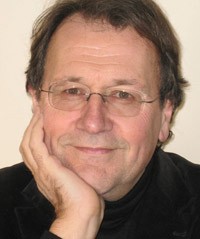Popper biography a first
Professor of English Brian Boyd has won a significant Marsden grant to write a biography on philosopher Karl Popper.
A biography has not yet been written on the life Karl Popper (1902-1994). The Austrian/British professor is hailed as one of the greatest philosophers of the twentieth century. Nobel medicine laureate Peter Medawar called him “incomparably the greatest philosopher of science that has ever been”.
Often at odds with philosophy as a profession, Poppper had an extraordinary impact on both the world of action, from politics to business, and the world of ideas, from art to physics. Popper was briefly based in New Zealand teaching at the University of Canterbury from 1937 to 1945. His book Open Society and Its Enemies has been called the most important book ever written in New Zealand, and some German thinkers believe it put the crucial crack in the Berlin Wall.
“Many think they know Popper, but know him only at second hand. I want to show why those who know his work at first hand value him so much,” says Professor Boyd.
In the late 1990s Professor Boyd travelled to 16 countries to investigate archives and locations and interview over 90 Popper associates from politicians (like Helmut Schmidt) to philosophers (like Isaiah Berlin).
“I find Popper’s thought marvellously exciting and fertile, and the best defence I know against what John Searle calls ‘the attacks on . . . objectivity, rationality, truth and intelligence in contemporary intellectual life’.”
Professor Boyd has previously penned biographies on the great Russian novelist Nabokov, which were credited with contributing to the Nabokov revival. Boyd seeks to ensure the Popper biography has a similar impact.
The proposal titled Karl Popper: A Life received $687,000 from the Marsden Fund. All Marsden projects are funded for three years.
The Faculty of Arts has won a significant share of the 2011 Marsden Funding. Six research teams led by Arts were successful in their bids, winning a total of $3.5 million. They were among 19 projects at The University of Auckland selected for the extremely competitive funding.








